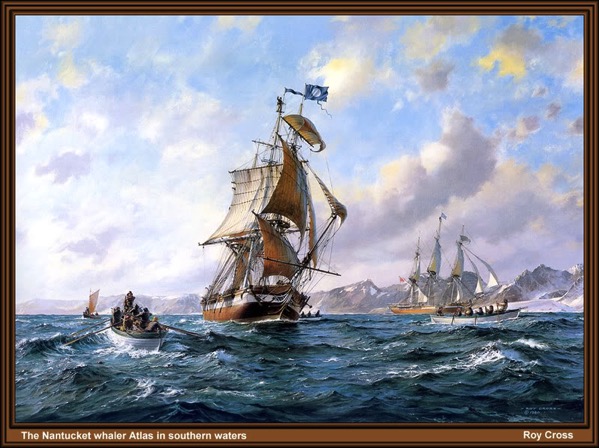One of the more famous, or oft-quoted, observations of Herman Melville in Moby-Dick is his judgment that it is rest that best equips the harpooneer to fulfill his role of spearing the whale.
To insure the greatest efficiency in the dart, the harpooneers of the world must start to their feet from out of idleness, and not from out of toil.”
As with many such observations, we can manipulate this one to fit our situations, even to justify our transgressions. “Mom, I can’t clean my room right now as I’m preparing to do my homework and, as Melville says, ‘To insure the greatest efficiency’ I must start to my feet ‘from out of idleness, and not from out of toil.'”

Still, the observation bears the aroma of painfully ignored wisdom. For many, and pastors such as I can be the worst offenders, rest is equated with inactivity and inactivity with idleness and idleness with ungodliness.
Through such twisted logic we limp to our pulpits worn out from too many late nights and early mornings. We put off our children and friends until we can fit them into our schedules. We assign our wives one night of conversation per week. And we leave our passions untouched and our gifts un-nurtured until we ‘find the time’ that forever eludes. We lead lives of noisy and busy, not quiet, desperation.
Rest is a precious gift that characterizes much that we can profitably say about Christianity which is why my inability to rest is at best counterintuitive and at worst a revelation of a deep-seated lack of faith. Jesus calls to himself all ‘who are weary and burdened’ so that he might give them rest. And through the prophet Isaiah God says:
“Come, everyone who thirsts,
come to the waters;
and he who has no money,
come, buy and eat!
Come, buy wine and milk
without money and without price.
Why do you spend your money for that which is not bread,
and your labor for that which does not satisfy?
Listen diligently to me, and eat what is good,
and delight yourselves in rich food.” (Isaiah 55:1, 2)
I come. Slowly, but I come. And I come with the help of kind and generous friends. Friends within and outside of my church last weekend sent my wife and I away to a resort cottage near the Gulf of Mexico. Our orders were to do nothing, to avoid certain stressors, and to reconnect with ourselves and one another. We went. We rested. And maybe we moved closer to genuine habit. Time will tell.
Melville set his famous observation as a corrective to the then common practice of making the harpooneer serve as an oarsman on the whaling boat. When the boat drew near to the whale and the time came for him to launch his spear his energy was spent. So Ishmael observes,
…in the vast majority of failures in the fishery, it has not by any means been so much the speed of the whale as the before described exhaustion of the harpooneer that has caused them.

Suzanne
Thou hast made us for thyself, O Lord, and our heart is restless until it finds its rest in thee.
Augustine of Hippo
Randy Greenwald
Well put.